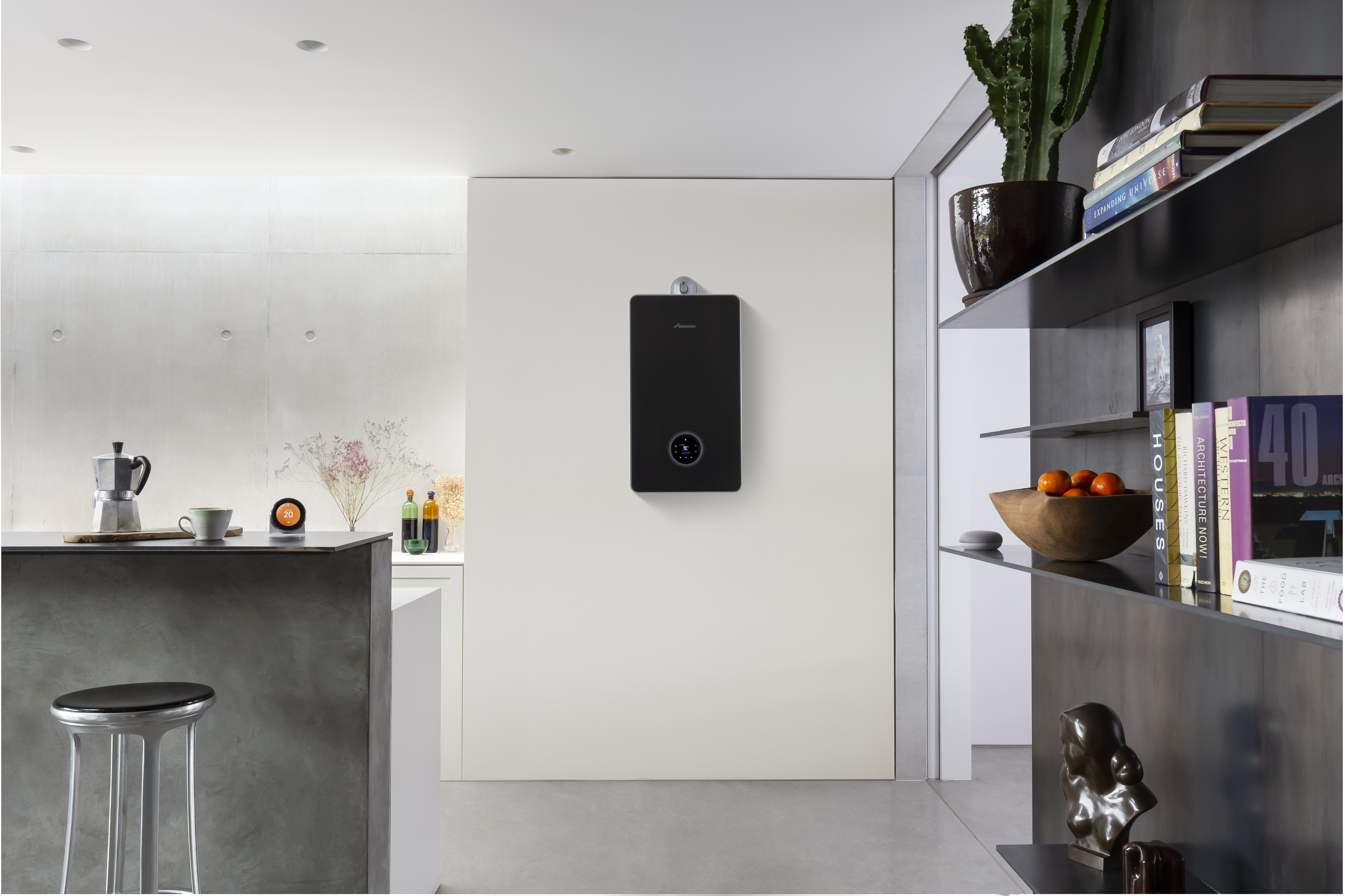This smart heating upgrade could save approximately 20% on rising energy bills
As Brits face an average £100 hike in energy bills this April, adding a smart thermostat to your boiler package could slash your energy use by 20 per cent


Get small space home decor ideas, celeb inspiration, DIY tips and more, straight to your inbox!
You are now subscribed
Your newsletter sign-up was successful
In February energy regulator Ofgem announced that the price cap for domestic energy bills would be raised to cover suppliers' rising wholesale costs. The current price cap saves households around £100 a year, but with this being lifted, millions will see their yearly bill rise at least £96, with larger properties facing a hike of as much as £1,138 according to the BBC.
So what can homeowners do to reduce their energy costs to mitigate the impending bill rise? We spoke to boiler experts BOXT who recommended that one of the most effective (and easiest) ways to reduce your energy costs is to fit smart heating technology such as one of the best smart thermostats – a service they now offer with their boiler installations. According to research by Google, data captured from their Nest Learning Thermostats showed homes across Europe saved an average of 20 per cent on their energy consumption after a Google Nest Learning Thermostat was fitted.
Google Nest aggregated data from thermostats that have been working in real homes since 2014. They calculated how much energy these homes would have used if the heating had been at 20ºC all the time, and factored in that a percentage of these homes would turn their heating down to 9ºC for seven hours at night in Britain. In mainland Europe, the energy assumption was slightly different – homeowners were typically turning their heating down to 15ºC overnight, much higher than the UK. Google then compared this baseline data, to the figures from real people's thermostats and found that homes were saving at least seven per cent more energy than they would have otherwise used, with some homes saving as much as 27 per cent on their energy and bills.
Homes in Spain and Italy had the largest saving range (seven per cent to 27 per cent shown above for Spain and seven to 25 per cent in Italy). In the UK, homeowners saved 8.4 per cent to 16.5 per cent, while those in Ireland were saving as much as 18.1 per cent on their energy usage. When all the figures are added together, Nest Learning Thermostats were saving an average of 20 per cent.
By using less energy, these homeowners find their bills are much lower than the average – something they will be grateful for when the April energy price rise comes into effect in the UK.
But how does a smart thermostat save energy? BOXT who have been installing Google Nest products with their home boiler service since 2019 explained: "Learning thermostats learn the temperatures you like, where and when so to heat your home efficiently. The Google Nest Learning Thermostat also turns itself down when you’re away to avoid heating an empty home, and you’ll receive monthly usage reports. Just when you thought saving energy couldn’t get any easier – a green leaf will appear on your thermostat when it is set to an energy-saving temperature." So the Nest teaches you to save energy as it learns your usage by giving you goals.
The initial costs of installing smart heating controls can easily be recouped with these energy savings, as it is estimated that turning your heating down even one degree can save as much as £75 a year. BOXT will install a Nest Learning Thermostat for free with many of their boilers, but with prices for a standalone smart thermostat starting around £170, it is easy to see how one pays for itself over time.
Get small space home decor ideas, celeb inspiration, DIY tips and more, straight to your inbox!
Other ways to save energy this month
Statista estimate that by 2022 there will be at least one connected home product in 40 per cent (or roughly 10 million) households, with smart heating growing in popularity. But for those not ready to install a smart thermostat or upgrade their boiler there are still plenty of energy saving ideas to put to use before the April energy bill rises. As well as hands on methods like adding insulation and filling draughty gaps, homeowners are encouraged to do an free energy comparison to see if they are paying too much in the first place. Many might be on a standard variable tariff or default tariff that rises with every energy price rise – something a fixed rate tariff will protect you from.
Combining these energy saving methods could save you even more than the 20 per cent of a smart thermostat alone, so get a more efficient boiler with smart controls, switch energy supplier and check your homes thermal efficiency and those energy bill price hikes will be far less of a concern.
Source: price rise information published by the BBC 5th Feburary 2021

Lindsey is Editor of Realhomes.com and Editor in Chief for Home Ecommerce at Future. She is here to give you aspirational, yet attainable ideas for your home and works with her team to help you get the best buys, too. She has written about homes and interiors for the best part of a decade for brands including Homes & Gardens, Ideal Home and Gardeningetc and isn't afraid to take the inspiration she finds at work into her own space – a Victorian terrace which she has been (slowly) remodelling for the last eight years. She is happiest sipping a cup of tea with a cat on her lap (if only she had a cat).